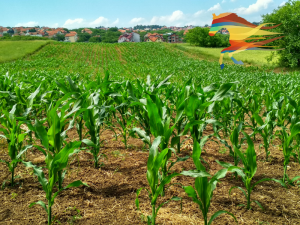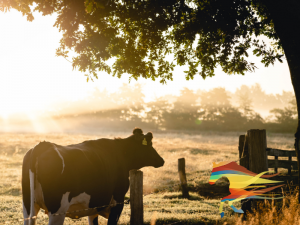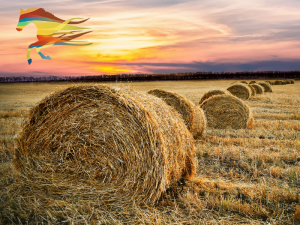

Defra has published details of the payment rates for the four standards that will be available to farmers in England through the new Sustainable Farming Incentive (SFI) from Spring 2022.
A pilot version of the scheme is currently in place involving nearly 1,000 farmers. However, the government intends to make ‘core elements’ of the scheme available more widely from next year, opening the Sustainable Farming Incentive up to any farmer in England with more than 5ha of land and eligible for the Basic Payment Scheme (BPS).
The scheme will be gradually expanded until all elements are available from 2024/25. Defra has set itself a target of 70% of farms and land being part of the scheme by 2028.
Initially farmers will be able to sign up to three standards: Arable and Horticultural Soils, Improved Grassland Soils, and Moorland and Rough Grazing. Livestock farmers will also be able to claim funding to access an annual health and welfare visit from a vet.
Within each of the standards, farmers will be able to pick whether to follow an introductory, intermediate or advanced level of activity. The scheme has been deliberately designed to be modular, so that farmers are free to choose which elements work for them.
The Arable and Horticultural Soils standard offers payments of between £22 and £40/ha, depending on whether a farmer chooses to implement it at an introductory or intermediate level. The introductory level will require a farmer to test soil organic matter, undertake a soil assessment and produce a soil management plan. They will also need to ensure at least 70% of the land in the standard has a green cover between December and February (which can include autumn sown crops and weedy stubbles) and commit to adding organic matter, including sown cover crops, to a third of the land entered into the standard each year. The requirements for the intermediate level are the same, but 20% of the green cover used must be multi-species green cover. The advanced option will not be available until 2023.
introductory level will require a farmer to test soil organic matter, undertake a soil assessment and produce a soil management plan. They will also need to ensure at least 70% of the land in the standard has a green cover between December and February (which can include autumn sown crops and weedy stubbles) and commit to adding organic matter, including sown cover crops, to a third of the land entered into the standard each year. The requirements for the intermediate level are the same, but 20% of the green cover used must be multi-species green cover. The advanced option will not be available until 2023.
The Improved Grassland Soil Standard will pay between £28 and £58/ha. The introductory level will require the farmer to test soil organic matter, undertake a soil assessment and produce a soil management plan. They must also have 95% green cover to protect soil. To qualify for the intermediate level, farmers must also establish or maintain herbal leys to improve soil health on at least 15% of land. The advanced level will not be available until 2023.
A fixed payment of £148 per agreement per year, plus an additional variable rate of £6.45/ha will be paid under the introductory level of the scheme. To qualify applicants must verify and record soil types, evaluate the public goods potential and condition of the moorland and identify opportunities to maintain or enhance public goods. Intermediate and advanced options will follow later in the scheme’s rollout.
types, evaluate the public goods potential and condition of the moorland and identify opportunities to maintain or enhance public goods. Intermediate and advanced options will follow later in the scheme’s rollout.
Farmers will be able to get funding for an annual vet visit, from a vet of their choice, to reduce endemic diseases and conditions within livestock. This will initially be available to farmers with either more than 50 pigs, 20 sheep or 10 cattle who are eligible for BPS. Payments rates are as follows: Pigs – £775; Sheep – £488; Cattle where BVD testing is required – £483 and Cattle where BVD testing is not required – £336.
Farmers are likely to be able to enter the following additional Sustainable Farming Incentive standards in the future:
The scheme will be open to farmers who are eligible for BPS, even if they already have an existing agri-environmental scheme agreement, provided the Sustainable Farming Incentive standard they choose is compatible with their existing agreement and does not result in them being paid twice for similar activities. However, cross-border land parcels will not be eligible for Sustainable Farming Incentive in the early rollout.
Farmers can choose how many of their fields to enter into the Sustainable Farming Incentive – they do not have to enter their whole farm.
 Sustainable Farming Incentive agreements will last for three years with some flexibility for farmers to amend them every 12 months. Only in exceptional circumstances will farmers be allowed to take land out of an agreement or reduce the level of ambition within a standard. But they will be allowed to incorporate additional standards as they become available, add land parcels or increase their ambition levels.
Sustainable Farming Incentive agreements will last for three years with some flexibility for farmers to amend them every 12 months. Only in exceptional circumstances will farmers be allowed to take land out of an agreement or reduce the level of ambition within a standard. But they will be allowed to incorporate additional standards as they become available, add land parcels or increase their ambition levels.
To help cash flow, payments will be paid quarterly, starting three months after each agreement starts. Each instalment will represent one-quarter of the annual payment.
The application window for the 2022 scheme will be open for at least 10 weeks, but the exact timing is yet to be confirmed. From 2024 onwards, farmers should be able to apply for and enter into Sustainable Farming Incentive at any time of year.
If you are planning a farm marketing strategy to promote your farm diversification then we would also recommend seeking support from marketing advisors, you can Check out our farm marketing strategy guide here, or you can book a consultation with us here.
Article taken from Strutt and Parker